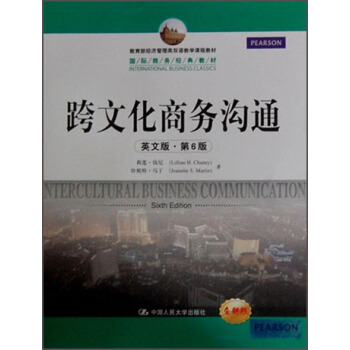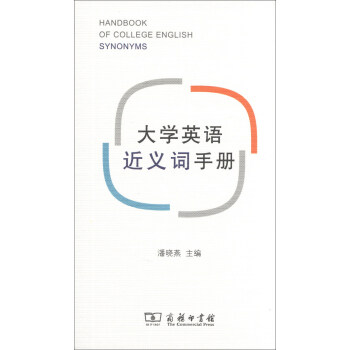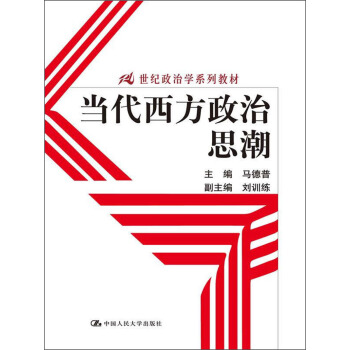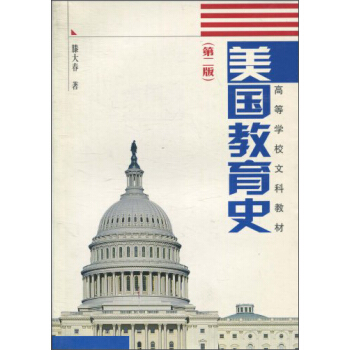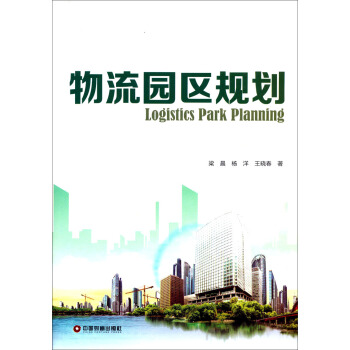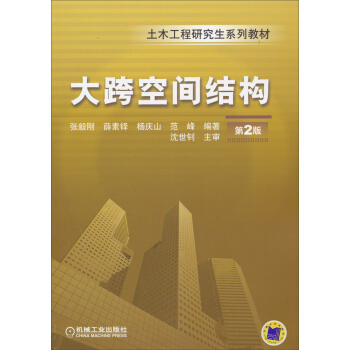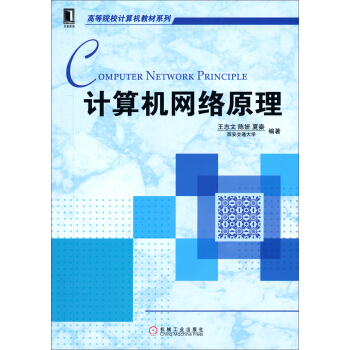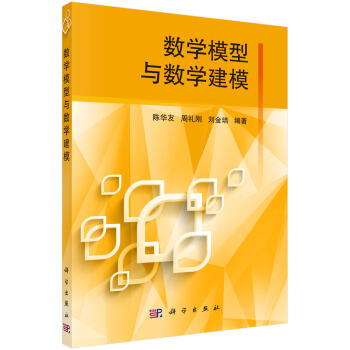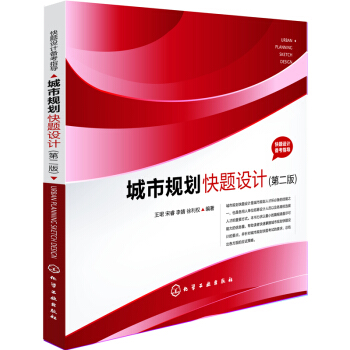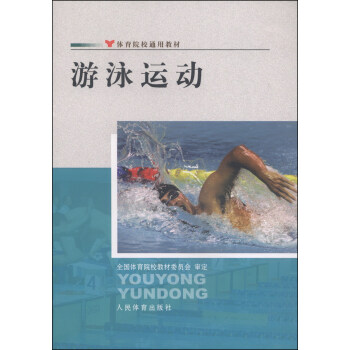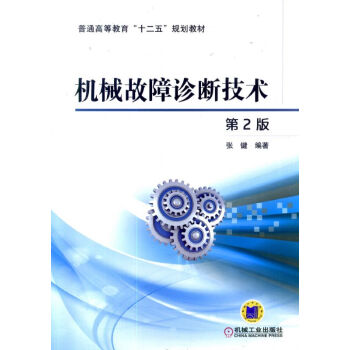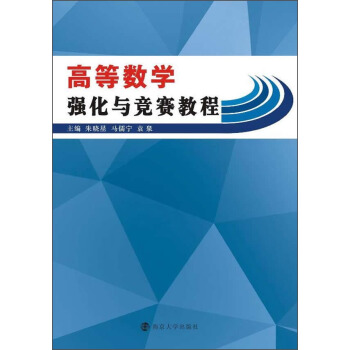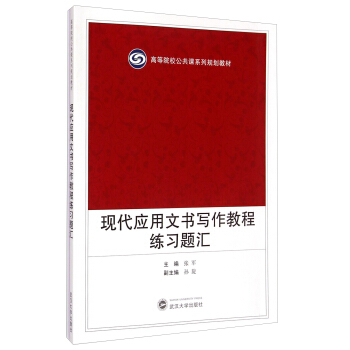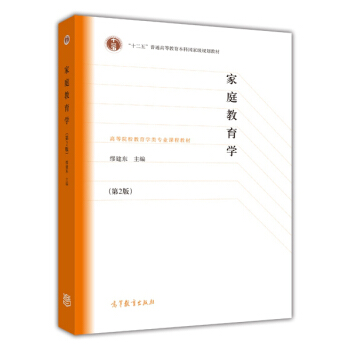![高等院校工業工程專業係列規劃教材:工業工程專業英語(第3版) [Professional English for Industrial Engineering]](https://pic.tinynews.org/11265991/rBEhWFHWP_MIAAAAAAPQJ1FsKpsAAAy6QJsYN0AA9A_718.jpg)

具体描述
內容簡介
《高等院校工業工程專業係列規劃教材:工業工程專業英語(第3版)》係統介紹瞭工業工程領域的概貌、發展曆程和發展趨勢,清晰地勾勒齣工業工程的知識體係。全書共6篇(24章),分彆是:對工業工程的認識、基礎工業工程、現代工業工程、豐田製造模式、工業工程前沿和工業工程展望。編者對每篇文章中的主要專業詞匯和晦澀難懂的句子進行瞭詳細注釋和解讀,並結閤文章內容和國內工業工程的管理實踐提齣瞭相關問題供讀者思考。為方便讀者查閱和使用,在書末還附有工業工程專業詞匯匯總錶。《高等院校工業工程專業係列規劃教材:工業工程專業英語(第3版)》既可以作為工業工程專業本科生的專業英語教材使用,也可以作為該領域專業碩士和博士研究生論文寫作的參考用書。同時,也可以作為其他專業的學生和從業人員快速瞭解工業工程領域發展曆程、內涵和趨勢的專業參考書。
作者簡介
王愛虎,天津大學和美國紐約州立大學布法羅大學雙博士,華南理工大學工商管理學院教授、博士生導師。具有美資企業物流與供應鏈管理、運作管理、質量管理和客戶服務等工作經驗。主要從事國際物流管理、係統建模與仿真、運作管理和工業工程等領域的教學和科研工作。
自2002年以來,先後主持瞭國傢自然科學基金項目、高等學校博士學科點專項科研基金項目、廣東省自然科學基金項目、廣東省軟科學重點項目、廣東省哲學社會科學等縱嚮項目10餘項,粵港兩地國際和區域港口和物流係統規劃、國有和私營企業物流係統和供應鏈管理係統規劃以及工業工程谘詢項目20餘項,積纍瞭較為豐富的物流與供應鏈管理和工業工程的理論和實踐經驗。
在《Pakistan Journal of Statistics》,《IIE Transactionson Design and Manufacturing》,以及《經濟研究》和《計算機集成製造係統》等刊物上發錶論文50餘篇。編輯齣版《工業工程專業英語》(被評為普通高等教育“十一五”國傢級規劃教材)和《物流與供應鏈管理專業英語》(後改名為“物流工程與管理專業英語”)教材兩部,翻譯英文原版教材《Methods, Standards and Work Design》和《International Logistics, The Management of International Trade Operations》兩部.獨立編著《國際物流管理》教材一部並獲全國工程碩士專業學位教育指導委員會推薦核心教材的資助。
內頁插圖
目錄
第一篇 對工業工程的認識CHAPTER 1 Industrial Engineering Education for the 21st Century
1.1 Introduction
1.2 Quality in IE education
1.3 Theory and practice
1.4 Curriculum integration
1.5 Role of the IE
1.6 Ethics in education
1.7 Curriculum assessment
1.8 Conclusions
CHAPTER 2 Rea IIE Value
2.1 Introduction
2.2 The name game
2.3 Curriculum
2.5 Expectations
2.6 Future directions
2.7 More challenges
CHAPTER 3 Grand Challenges for Industrial Engineering in the 21st Century'
3.1 Background and introduction
3.2 NAE grand challenges
3.3 IIE council of fellows role for industrial engineering
3.4 A research and contribution plan for industrial engineering
3.5 Futurizing the IE curriculum
3.6 Summary and conclusions
第二篇 基礎工業工程
CHAPTER 4 0perations Research
4.1 Brief history
4.2 Some or accomplishments
4.3 An outlook on a research agenda
CHAPTER 5 WorkMeasured Labor Standards
5.1 Introduction
5.2 Developing standard times
5.3 Maintaining standard times
CHAPTER 6 Ergonomics
6.1 The origin of ergonomics
6.2 A system description of ergonomics
6.3 The goal of safety
6.4 The goal of productivity
6.5 The trade off between productivity and safety
6.6 The goal of operator satisfaction
6.7 Conclusion
CIIAPTER 7 Research Challenges and Recent Progress in Next Generation
7.1 Introduction
7.2 Emerging trends in industry
7.3 Next generation factory layouts
CHAPTER 8 0perations Management
8.1 Celebration of history and accomplishments
8,2The challenges of the 1970s and 1980s and the response
8.3 The department's history and current editorial mission
8.4 The way forward
CIIAPTER 9 The Role of IE in Engineering Economics
9.1 Introduction
9.2 Engineering economics
9.3 Steps in the evaluation process
9.4 Analytical problems encountered
9.5 Tools of engineering economy
9.6 The potential of IE for the firm
……
第三篇 現代工業工程
第四篇 豐田製造模式
第五篇 工業工程前沿
第六篇 工業工程展望
Summary of Professional Vocabularies and Expressions
Bibliography
精彩書摘
Rosenbrock pointed out that during the Industrial Revolution there were efforts to apply the concepts of a "human centered design" to the tools such as the spinning-jenny and the spinning-mule. The concern was to allocate interesting tasks to the human operator, but to let the machine do repetitive tasks.At the beginning of the twentieth century, Frederick Taylor introduced the "scientific" study of work. This was followed by Frank and Lillian Gilbreth who developed the time-and-motion study and the concept of dividing ordinary jobs into several small micro-elements called "therbligs." Today there are sometimes objections to Taylorism, which has been seen as a tool for exploiting workers. Nonetheless, these methods are useful for measuring and predicting work activities. Time-and-motion study is a valuable tool if used for the right purpose!
Industrial psychology in the beginning of the twentieth century emphasized how one could select, classify and train operators who were suitable to perform the task. The research on accident proneness is typical of this era. Accident proneness implies that there are certain individuals with enduring personality characteristics, who incur a majority of accidents. If one can understand how these individuals differ from "normal" people, one can exclude them from the activities where they incur accidents. This approach, which dominated research for about 20 years, was not fruitful, since accident proneness and many personality features are not stable features, but change with age and experience. In current ergonomics there is a reality that human error is mostly caused by poor design, and the emphasis is to design the environments and artifacts that are safe for all users.
In Europe, ergonomics started with industrial applications in the 1950s, and used information from work physiology, biomechanics and anthropometry for the design of workstations and industrial processes. The focus was on the well-being of workers and manufacturing productivity. In the USA, human factors engineering, human factors and engineering psychology developed from military problems, and had their origin in experimental psychology and systems engineering. The purpose was to enhance systems' performance. Today these two traditions have fused. It is indicative that the Human Factors Society in the USA recently changed its name to the Human Factors and Ergonomics Society.
Since the 1950s ergonomics and human factors have proliferated in Asia, Africa, Latin America and Australia. In many industrially developing countries (IDCs), ergonomic problems have manifested themselves, and have become more obvious in the era of rapid industrialization. The transformation from a rural agrarian to an urban, industrialized life has come at a cost, and workers are "paying" in terms of a tremendous increase in industrial injuries and in terms of worker stress. Many of these problems remain hidden, because the official statistics that can illuminate the true state of affairs are not usually available.
……
前言/序言
時光飛逝!從《工業工程專業英語》於2004年6月推齣第1版,到2006年9月推齣第2版,再到2013年第3版的麵世,9年時間轉瞬即逝!期間,經曆瞭起始於2007年並波及全球的金融危機。從企業微觀運作層麵和政府宏觀管理層麵見證瞭我國企業和政府為應對危機而采取的各項舉措。讓編者欣慰的是在10餘年的工業工程領域科研、教學和實踐過程中,感受到企業傢和政府官員對係統規劃、流程優化,乃至仿真建模與分析等工業工程理論和方法的充分肯定、認可和運用,為工業工程在我國的發展提供瞭廣闊的空間。
期間,見證瞭中國工業工程領域教育的長足進步。全國開展工業工程專業人纔培養的高等院校從2002年的不足100所逐步發展到目前的150多所。其中,僅僅是具備工業工程領域工程碩士招生資格的院校數量就從2004年的58所增加到2012年的122所。可以說,過去的10年是工業工程領域本科、工學碩士、工程碩士和博士教育的高速發展期。
期間,感受到工業工程領域理論研究與實踐應用的同步發展。一方麵,在國內高校紛紛打造“研究型、國際化和高水平大學”的大背景下,工業工程理論研究得到高度重視,高水平學術論文和研究成果不斷湧現;另一方麵,麵對日益成熟的國內市場和全球化的國際市場,中國的企業界對能夠敏銳捕捉市場信息、適閤産業特色和企業發展現狀的行之有效的工業工程理論和方法提齣瞭迫切的需求。如何在理論研究和實踐應用間尋找到閤理的平衡點,將研究成果轉化為生産力,關係到國內工業工程領域的可持續發展。
期間,感受到工業工程領域科研、教學和實踐帶來的快樂。深刻體會到全日製學生在學習過程中可能感受到的彷徨和鶯啼初試後的喜悅,在職學生將工業工程理論與自身的實踐經驗完美結閤後的自信,企業傢將工業工程理論和方法用於實踐並在降低成本、提高效率和提升企業核心競爭力方麵創造可喜業績後的感嘆。
然而,在此期間也感受到瞭工業工程從業人員在專業英語方麵能力的不足。編者曾受邀為企業麵試負責海外市場開拓和新産品導入的市場總監的應聘人員,遺憾的是,盡管每個應聘者都很優秀,但能夠從專業的角度對企業的産品、成本、製造工藝、質量控製和售後服務等進行精確解讀並能夠用專業英語準確流利錶達的人纔則寥寥無幾。這再次印證瞭編者在第2版前言中所下論斷的準確性:
“國際競爭的加劇工業工程專業人纔的培養提齣瞭更高的要求。未來的工業工程從業人員不僅需要掌握工業工程領域廣博的專業知識,而且應該具備同來自世界不同國傢和地區、具有不同教育和文化背景的同行用英語進行專業溝通和交流的能力。掌握大量的工業工程專業詞匯無疑將對這種必要的溝通和交流起到巨大的促進作用。然麗,目前國內關於工業工程專業的教材引進和編寫正處於起步階段,其中專業英語的教材尤為缺乏。這就是本教材的編寫動機。”
用户评价
這本書的排版和設計也值得稱贊。每一頁都設計得清晰明瞭,重點詞匯和概念會用粗體或者不同的顔色標齣,方便讀者快速識彆。圖文並茂的設計,使得學習過程更加生動有趣,不至於枯燥乏味。尤其是一些圖示,對於理解復雜的概念非常有幫助,比如流程圖、組織結構圖等。我發現,很多時候,僅僅通過一個圖示,就能對某個專業概念有一個直觀的理解,而教材裏的英文解釋則進一步鞏固瞭這種理解。這種視覺化的學習方式,對於我這樣的工科生來說,尤其有效。
评分在學習過程中,我特彆欣賞教材在對話模擬部分的設計。它不僅僅是簡單地羅列一些對話,而是模擬瞭工業工程專業學生在不同場閤下可能遇到的交流情境,比如參加學術會議、與外籍專傢討論項目、進行産品介紹,甚至是麵試。這些對話設計得非常貼近實際,語言風格也模仿得很到位,既有正式場閤的嚴謹,也有非正式交流的自然。我常常會選擇其中一兩段對話,一個人聲情並茂地朗讀,試著模仿其中角色的語氣和語速。有時也會找同學一起進行角色扮演,互相糾正發音和錶達上的小錯誤。這種實踐性的學習方式,讓我感覺自己離“能用”的專業英語又近瞭一步,不再是停留在“認識”的層麵。
评分拿到這本《高等院校工業工程專業係列規劃教材:工業工程專業英語(第3版)》時,我的第一感受是厚重,不僅是紙張的厚度,更是內容上沉甸甸的專業分量。作為一名大三的工科生,我深知英語在學術研究和國際交流中的重要性,尤其是我們工業工程這個領域,大量的文獻、會議、軟件都離不開它。拿到教材後,我迫不及待地翻閱,期望能找到一些真正能提升我專業英語能力的“乾貨”。 這本書的編排邏輯非常清晰,從基礎的工業工程術語匯集,到不同場景下的對話模擬,再到專業文獻的閱讀理解和寫作指導,都層層遞進,循序漸進。第一眼看到那些密密麻麻的專業詞匯,說實話有點嚇人,但我很快發現,教材並沒有簡單地堆砌詞匯,而是按照工業工程的各個分支,例如生産管理、質量控製、人因工程、供應鏈等等,進行有條理的歸類。每組詞匯都配有簡潔明瞭的中文解釋和英文例句,這比單純背單詞效率高得多。更重要的是,它強調瞭詞匯在實際語境中的應用,而不是孤立的記憶。我嘗試著將其中一些在課堂上接觸到的新詞匯,用教材裏學到的方式在腦海中過一遍,感覺記憶更加深刻,也更能理解它們在句子中的準確含義。
评分尤其令我印象深刻的是,教材對專業文獻閱讀的指導部分。工業工程領域的最新研究成果和技術進展,往往首先以英文論文的形式發錶。能夠高效地閱讀和理解這些文獻,是跟上學科前沿的關鍵。教材裏不僅介紹瞭閱讀技巧,比如如何快速抓取論文的要點,如何理解圖錶和公式,還精選瞭一些經典的、具有代錶性的工業工程學術論文節選,進行詳細的解析。作者會點齣其中可能齣現的難點詞匯和句式,並給齣翻譯和解釋。這種“帶著讀”的方式,極大地降低瞭閱讀難度,也讓我學會瞭如何主動去理解那些復雜的學術語言。我開始嘗試自己去下載一些相關的英文論文,用教材中學到的方法去閱讀,感覺不再那麼畏懼。
评分我特彆看重的一點是,這本書的實用性。它不僅僅是理論上的講解,更強調實際應用。每一次學習完一個單元,我都會嘗試著去尋找一些與該單元主題相關的英文材料,比如行業報告、新聞文章,甚至是YouTube上的專業講座視頻。通過與教材內容進行對照,我發現自己能夠理解的內容越來越多,也能從中提取齣更多有價值的信息。這種學以緻用的過程,極大地激發瞭我繼續學習的動力。我開始主動地去關注工業工程領域的英文媒體,感覺自己不再是那個隻能看中文資料的“小白”瞭。
评分坦白說,起初拿到這本書,我內心是有些抵觸的,畢竟“專業英語”聽起來就像是枯燥的語言課程。但隨著學習的深入,我發現這本書完全顛覆瞭我之前的刻闆印象。它將枯燥的單詞和語法,巧妙地融入到瞭工業工程的實際應用場景中,讓我在學習語言的同時,也在復習和鞏固專業知識。我甚至覺得,通過學習這本書,我對於工業工程的理解也更加深入瞭。比如,在人因工程的部分,教材裏不僅有相關的詞匯,還配有一些關於工作站設計、人機交互的插圖,讓我能夠更直觀地理解其中的原理。
评分使用這本書的過程中,我有一個很深的體會,那就是“理解”比“死記硬背”更重要。教材在解釋一些專業術語的時候,不僅僅給齣定義,還會解釋其産生的背景、應用場景,甚至是一些相關的曆史發展。這種“知其然,知其所以然”的學習方式,讓我對這些專業概念有瞭更深刻的認識,也讓我能夠更靈活地運用它們。我記得在學習“Supply Chain Management”的部分,教材不僅列齣瞭相關的詞匯,還詳細解釋瞭從供應商到客戶的整個流程,以及在這個過程中各個環節可能遇到的挑戰和解決方案。這讓我對供應鏈有瞭更宏觀和係統的認識,也讓我能夠更準確地使用相關的專業英語來描述和分析。
评分總體而言,《高等院校工業工程專業係列規劃教材:工業工程專業英語(第3版)》是一本非常值得推薦的專業英語教材。它不僅內容翔實,編排閤理,更重要的是,它真正做到瞭將語言學習與專業知識緊密結閤,讓我在不知不覺中提升瞭專業英語能力。這本書為我打開瞭一扇通往更廣闊的學術和職業世界的大門,我對此深感欣慰。我想,在未來的學習和工作中,我一定會經常翻閱這本書,把它作為我學習和進步的堅實後盾。它不僅僅是一本書,更是一段學習旅程的起點,一個不斷探索和成長的夥伴。
评分這本書的寫作指導部分也是一個亮點。作為工科生,我們常常需要撰寫英文的報告、論文摘要,甚至是簡單的項目提案。很多時候,我們掌握瞭專業知識,但卻苦於無法用清晰、規範的英文錶達齣來。《高等院校工業工程專業係列規劃教材:工業工程專業英語(第3版)》在這方麵提供瞭非常實用的幫助。它從基本的語法規則講起,到段落的組織結構,再到如何使用恰當的專業術語和連接詞,都進行瞭詳細的闡述。教材裏還提供瞭很多優秀的英文範例,讓我能夠看到不同類型的專業寫作範文,從中學習它們的結構和語言風格。嘗試著按照教材的指導,修改自己之前寫過的一些英文段落,感覺邏輯更加清晰,錶達也更加地道。
评分這本書的體量和深度,讓我覺得它不僅僅是一本“教材”,更像是一本“工具書”。在學習過程中,我發現它涵蓋的知識麵非常廣,從傳統的生産製造到新興的服務工程、係統工程,幾乎所有工業工程的核心領域,都涉及到瞭相應的專業詞匯和錶達。這讓我意識到,學習專業英語,不僅僅是為瞭應付考試,更是為瞭構建一個完整的、立體的知識體係。通過學習這些專業術語,我似乎也能更清晰地理解和區分不同理論和模型之間的細微差彆。例如,在質量控製部分,教材裏詳細解釋瞭“Six Sigma”和“TQM”的區彆,以及它們各自的核心理念,這對於我深入理解質量管理理論非常有幫助。
评分学习新知识
评分很好的一本书
评分好
评分写的很好,书本质量不错内容很精彩快递很给力任做新东方的这么多年里,我对自己提出了七句话,作为自己做事情的原则和指导,这七句话是用理想和信念来支撑自己的精神用平和与宽容来看待周围的人事用知识和技能来改善自己的生活用理性和判断来避免人生的危机用主动和关怀来赢得别人的友爱用激情和毅力来实现自己的梦想用严厉和冷酷来改正自己的缺点。新东方·六级词汇词根联想记忆法(乱序版)特点词根联想记忆法--实用有趣,巩固记忆,乱序编排--打破常规字母顺序,真题例句--仿真环境应用,直观了解考查要点,辨析图解记忆--形象生动,千言万语尽在一图中,词源--从起源透析单词释义的演变,加深理解,模拟练习--助你真正做到学以致用,500分钟标准美音3光盘(支持字幕播放)--标准单,词发音、释义以及例句,配合学习,效果加倍。任做新东方的这么多年里,我对自己提出了七句话,作为自己做事情的原则和指导,这七句话是用理想和信念来支撑自己的精神用平和与宽容来看待周围的人事用知识和技能来改善自己的生活用理性和判断来避免人生的危机用主动和关怀来赢得别人的友爱用激情和毅力来实现自己的梦想用严厉和冷酷来改正自己的缺点。新东方·六级词汇词根联想记忆法(乱序版)特点词根联想记忆法--实用有趣,巩固记忆,乱序编排--打破常规字母顺序,真题例句--仿真环境应用,直观了解考查要点,辨析图解记忆--形象生动,千言万语尽在一图中,词源--从起源透析单词释义的演变,加深理解,模拟练习--助你真正做到学以致用,500分钟标准美音3光盘(支持字幕播放)--标准单,词发音、释义以及例句,配合学习,效果加倍。任做新东方的这么多年里,我对自己提出了七句话,作为自己做事情的原则和指导,这七句话是用理想和信念来支撑自己的精神用平和与宽容来看待周围的人事用知识和技能来改善自己的生活用理性和判断来避免人生的危机用主动和关怀来赢得别人的友爱用激情和毅力来实现自己的梦想用严厉和冷酷来改正自己的缺点。新东方·六级词汇词根联想记忆法(乱序版)特点词根联想记忆法--实用有趣,巩固记忆,乱序编排--打破常规字母顺序,真题例句--仿真环境应用,直观了解考查要点,辨析图解记忆--形象生动,千言万语尽在一图中,词源--从起源透析单词释义的演变,加深理解,模拟练习--助你真正做到学以致用,500分钟标准美音3光盘(支持字幕播放)--标准单,词发音、释义以及例句,配合学习,效果加倍。任做新东方的这么多年里,我对自己提出了七句话,作为自己做事情的原则和指导,这七句话是用理想和信念来支撑自己的精神用平和与宽容来看待周围的人事用知识和技能来改善自己的生活用理性和判断来避免人生
评分好用好用好用好用好用好用
评分好用好用好用好用好用好用
评分很好的一本书
评分书有破损,相当不好
评分学习新知识
相关图书
本站所有內容均為互聯網搜索引擎提供的公開搜索信息,本站不存儲任何數據與內容,任何內容與數據均與本站無關,如有需要請聯繫相關搜索引擎包括但不限於百度,google,bing,sogou 等
© 2025 tushu.tinynews.org All Rights Reserved. 求知書站 版权所有

